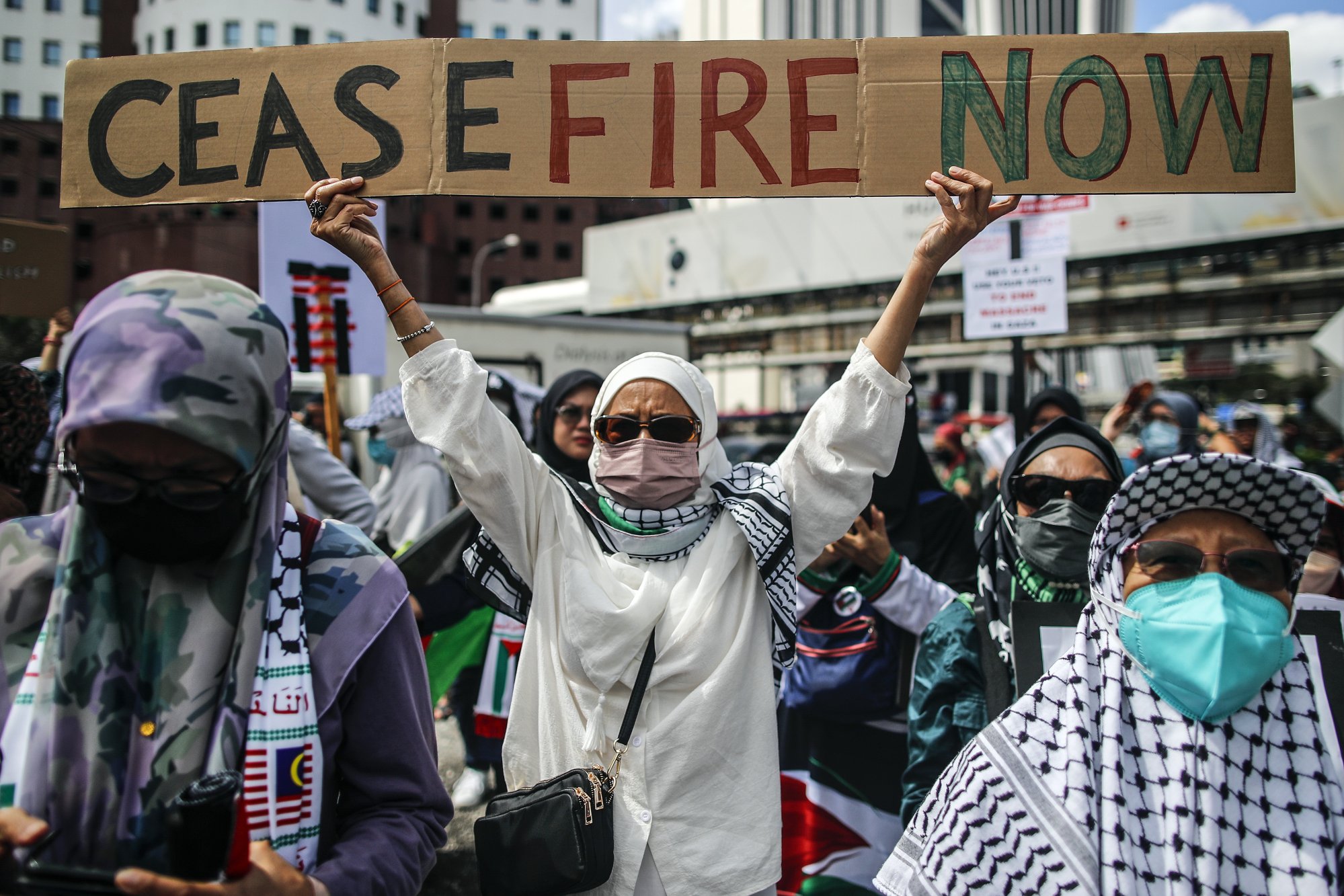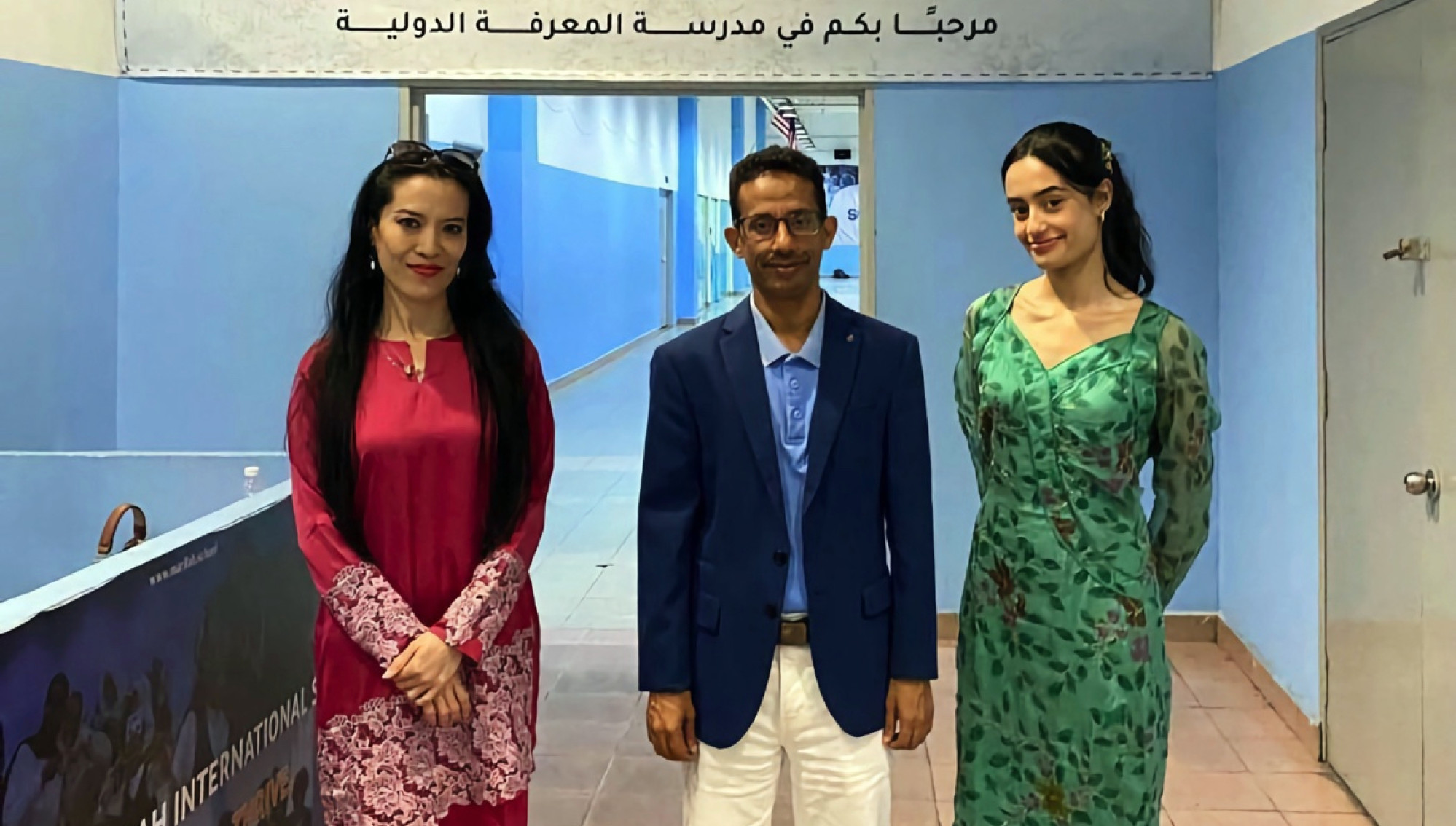Malaysian TikTok star ‘Tube Girl’ funds schooling for Palestinians: ‘you have to give back’, says influencer, real name Sabrina Bahsoon
Her fame has brought opportunities to walk on fashion runways and garnered almost 800,000 followers on TikTok, with her breakout video in August viewed nearly 30 million times alone.
Now, guided by her father’s Lebanese heritage and Malaysia’s staunch support of the Palestinian cause, Sabrina has sponsored schooling for a group of children from the city’s small Palestinian refugee community in collaboration with refugee advocacy group, Geutanyoe Malaysia.
“My values from my father and my mum are you have to give back,” Sabrina told This Week in Asia during a trip to Kuala Lumpur. “Success is only given to those who will help others in return when they get there. So I want to do something.”
Malaysia is one of the countries that formally recognises Palestinian nationhood and has no formal ties with Israel.
Malaysia backs South Africa’s ICJ case against Israel’s ‘genocidal’ acts in Gaza
Malaysia backs South Africa’s ICJ case against Israel’s ‘genocidal’ acts in Gaza
Yet Malaysia does not formally recognise refugees.
According to UNHCR, there are some 185,000 refugees and asylum seekers registered with it in Malaysia. Palestinians account for around 600 of the total, with more than 3,500 yet to be registered.
Malaysia’s approach to refugees has fallen under intense scrutiny in recent weeks, with observers including Amnesty International and the United Nations saying the country’s lack of formal recognition pushes refugees and asylum seekers to the margins, including working illegally.

Meanwhile, the lack of formal status puts free, public schooling off-limits, holding back the development and chances of young refugees to build a foothold in the country which they may ultimately spend many years in.
The Sabrina Bahsoon’s Fund for Palestinian Children’s Education is supporting 14 children, aged six to 16, through their schooling by sponsoring their studies at a private school in Kuala Lumpur.
“They have not ever been in school. So they’ve been home-schooled for most of their life,” she said, describing the children as “so sweet” and “cheeky”.
“I grew up believing that school is one of the most important things for development and education is necessary for all children,” Sabrina said. “However, you don’t get free education in Malaysia if you are not Malaysian.”

In 2019, the government mulled allowing refugees to attend school, seek services at government hospitals and participate in the local workforce, but a political crisis that struck the country in 2020 scuttled such efforts.
The idea was floated again in 2022, with Foreign Minister Saifuddin Abdullah saying that educating the refugees would make them more likely to be selected by a third country for resettlement.
“They make Malaysia a stopover and expect to be accepted by third countries, but third countries are also choosy and one of the selection criteria is that they have some education,” Saifuddin said.
Malaysians hit back as McDonald’s franchisee sues over Israel boycott
Malaysians hit back as McDonald’s franchisee sues over Israel boycott
Geutanyoe Malaysia director Lilianne Fan said the costs of private education in Malaysia were prohibitively high and all help was welcomed. On average, fees are upwards of 20,000 ringgit (US$4,300) a year per student.
“These families have lost many of their loved ones in Gaza, and private education in Malaysia is very expensive for them when they can’t work legally,” she said.
“So it’s a real gift and relief for them that they don’t have to worry now about how to pay the school fees. At least they can be assured that their children have a future.”
Sabrina, a law graduate from Durham University who now lives in London, told This Week in Asia she was stunned by the public’s embrace of her videos, saying she did not intend for the light pop videos cut to famous songs to spark a “confidence movement”.
Her father, Khalid Bahsoon said that the family was proud of her initiative, calling it “very admirable”.
“Palestinian children need help, need support,” he said. “I think it’s a great cause.”


 Offers free spin
Offers free spin